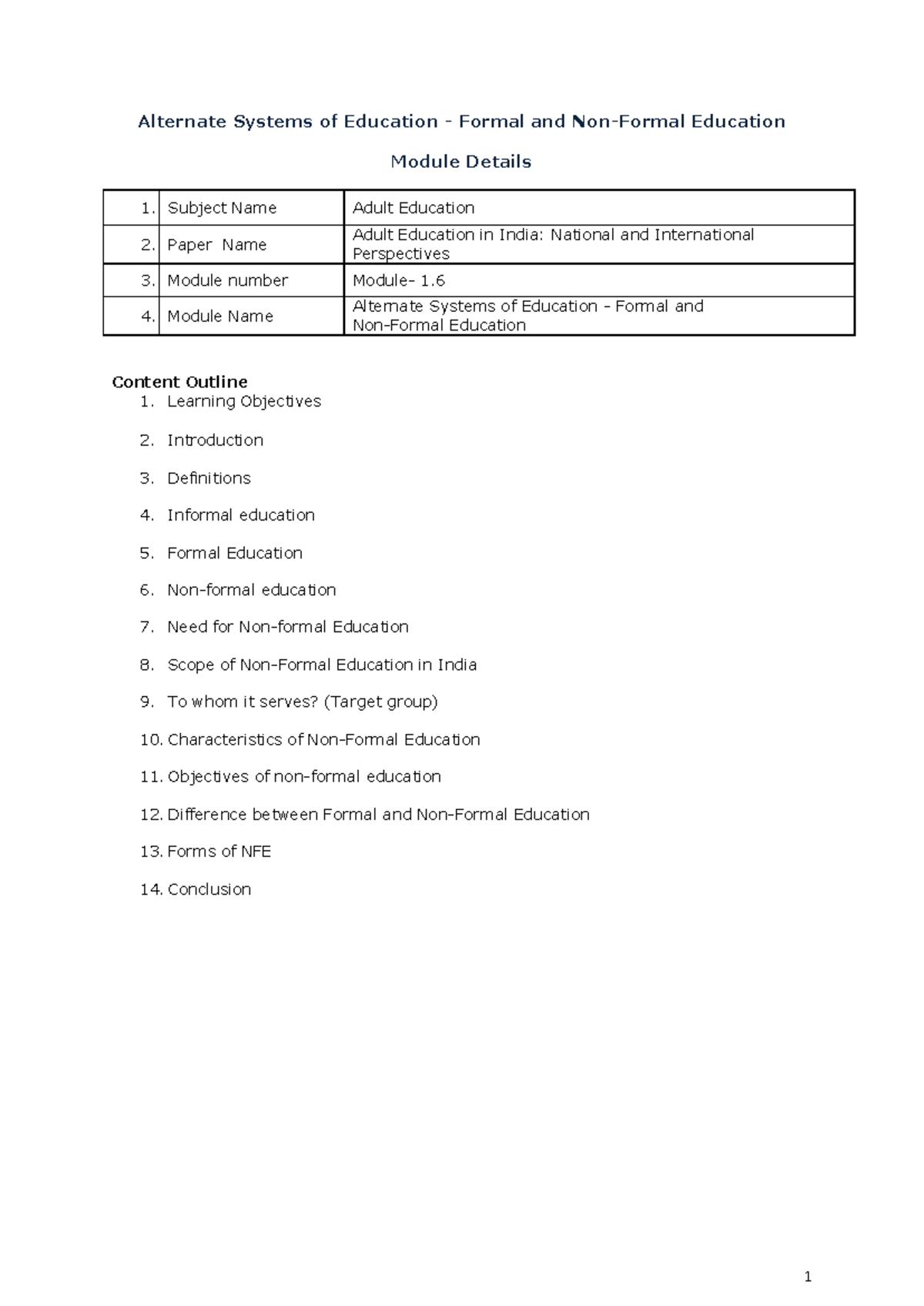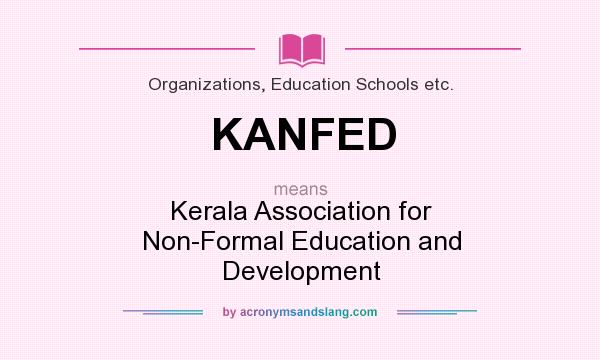
- #DEFINITIONS OF NON FORMAL EDUCATION HOW TO#
- #DEFINITIONS OF NON FORMAL EDUCATION FULL#
- #DEFINITIONS OF NON FORMAL EDUCATION PROFESSIONAL#
Non-formal education also has important implications for lifelong learning. It does not matter which part of the cycle we start from, as long as we move through all of the four steps in a logical procession.
#DEFINITIONS OF NON FORMAL EDUCATION FULL#
We find however, that we learn far better if we use all of the four learning styles by accomplishing a full learning cycle. What is your preference? Due to these natural tendencies, we learn best when using our preferred learning style and worst when using the opposite one.
#DEFINITIONS OF NON FORMAL EDUCATION HOW TO#
We all have a preference regarding how to collect and process information about the world. It will always play a very important role in education. We should not, however, forget the important knowledge element just because formal education seems to prefer it. Tolerance is an example of an attitude that we often see develop using non-formal education.

Non-formal education, on the other hand, is often much more based on skills and also has attitude-based learning objectives.


#DEFINITIONS OF NON FORMAL EDUCATION PROFESSIONAL#
It can support personal development, as well as improve an individual’s professional skills. The main advantage of non-formal education is it’s flexibility and ability to adapt to individual people’s current needs and the continual changes in society. Non-formal education has numerous advantages in personal development in comparison to traditional formal education. Erasmus + projects does not require to be carried on 5 * Hotels or in the official meeting rooms. Yes, It can happen even at the campfire in the forest or somewhere at the seaside or in the mountains. “Non-formal learning is purposive but voluntary learning that takes place in a diverse range of environments and situations for which teaching/training and learning is not necessarily their sole or main activity.” The glossary of the European Knowledge Center for Youth Policy describes non-formal learning as follows: It is widely acknowledged and recognized that non-formal learning provides unique learning opportunities to millions of young Europeans. The emphasis is on the learner’s intrinsic motivation, voluntary participation, critical thinking and democratic agency. Non-formal Education – photo credit: Mike Erskine It stands for a range of core learning principles, methodologies and approaches in the youth field. Non-formal learning is an extensively used and intensely debated notion in the youth field. In Erasmus+ projects ( training courses, youth exchanges, seminars etc) someone would face the Non- formal way of learning.

Non- formal Education and Erasmus+ projects The ‘trainer’ is simply someone with more experience such as a parent, grandparent or a friend. Informal learning – No formal curriculum and no credits earned. Continuing education courses are an example for adults. Though it doesn’t result in a formal degree or diploma, non-formal education is highly enriching and builds an individual’s skills and capacities. This type of education may be led by a qualified teacher or by a leader with more experience. Non-formal learning – Organized (even if it is only loosely organized), may or may not be guided by a formal curriculum. Teachers are usually trained as professionals in some way. Formal Education – photo credit: National Cancer Instituteįormal education is the organized, guided by a formal curriculum, leads to a formally recognized credential such as a high school completion diploma or a degree, and is often guided and recognized by government at some level.


 0 kommentar(er)
0 kommentar(er)
